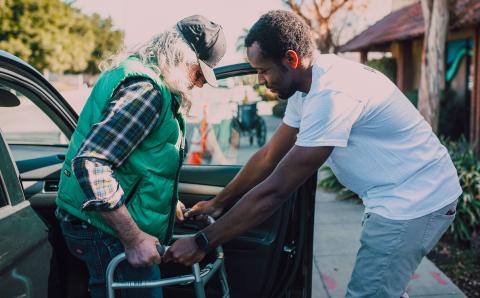Council of Delegate members signify their agreement with the teachings of the Christian Reformed Church’s creeds and confessions by signing the Council’s Statement of Agreement, similar to the way local church officebearers sign the denomination’s Covenant for Officebearers. Historically there have been very few requests for an exception about a specific teaching.
But following Synod 2022’s decisions regarding human sexuality, particularly in affirming the confessional status of the church’s traditional understanding of marriage, some Council members have been seeking a process to file an exception, indicating their difficulty with that decision. (See also “What Do Confessing Members, Officebearers Do When They No Longer Agree With the Confessions?”)
The process by which exceptions are requested and approved was under discussion at the October meeting of the Council.
Delegates discussed the recommended process at length and were not entirely in agreement.
When a delegate requests an exception, the Council’s executive committee will make a decision on whether or not to grant it, based on the centrality of the belief for which the exception is sought and the member’s agreement not to publicly contradict, teach, or act against the synodical position.
Delegate Amy Nydam, Classis Alberta North, felt that the requirement not to contradict, teach, or act against the synodical position was very broad and non-specific. “Can someone speak beyond Council and classis, share that this is a struggle?”
Michael TenHaken, Council vice president, replied, “We ask that if you have an exception, use good wisdom and judgment, recognizing you are part of a larger body, that synod has a decision binding on (you). If you feel that this is going to stifle you too much, I think we’re asking individuals to seriously consider whether they can serve on the COD (Council).”
The executive committee’s decision would be final and be documented in executive session minutes. Public minutes note only the number of exceptions requested and how many were granted or denied. Subsequently, the petitioner would enter their name in the Statement of Agreement signature book with an asterisk next to their name. The written exception would be kept in a confidential file until the member concludes service on the Council.
Tyler Wagenmaker, Classis Zeeland, said that the proposed practice of taking an “exception” to our Reformed Confessions is problematic on many levels. “We make a promise as leaders in the CRC to teach and preach everything found in the confessions, and we expect others in positions of leadership in the CRC to do the same, which is how trust is developed among a diverse people,” he said. “But now there will be essentially an undisclosed list kept of some who no longer promise to do that. That covenant, which was supposed to bind us, is essentially now broken.”
He also finds it problematic on a practical level, noting that Council members make hiring decisions. “If I know that the person we as a COD are being asked to hire most likely wants the denomination to move in the direction of changing our position on human sexuality, (if) I vote to hire that person, then through my authority as a COD member I’m actively undermining my promise to teach and defend the confessions,” he said. “We are expected to trust each other. Except now we can’t trust each other because some members have taken an exception but are still influencing debates and votes as members in good standing in the COD. Taking an exception to the confessions is a very bad idea and will hurt this body and our denomination.”
Andy de Ruyter, Council president, replied, “I think we have to trust the Lord’s leading in this, that people won’t use their exceptions for that.”
The Council voted 41-5 to accept the proposed process for requesting exceptions. De Ruyter noted that there have been eight requests so far.
About the Author
Gayla Postma retired as news editor for The Banner in 2020.









